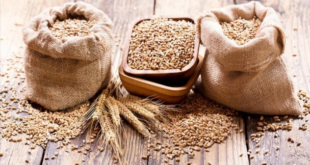Report Name: Japan Begins to Explore Regulations for Alternative Meat
Products
Report Category: Agricultural Situation, Oilseeds and Products, Livestock and Products
Prepared By: Daisuke Sasatani
Report Highlights:
To stimulate the use of non-traditional protein sources in the Japanese diet, Japan’s Ministry of Agriculture, Forestry and Fisheries established a public-private partnership to develop regulations for insect-based and plant-based foods derived through innovative technologies. In the last year alone, a
number of large Japanese food companies have announced plans to develop plant-based “alternative meat” products.
General
On April 17, 2020, Japan’s Ministry of Agriculture, Forestry and Fisheries (MAFF) established the “Food Tech Study Group” to utilize new technologies and diversify protein sources in the Japanese diet. The group consists of 164 food companies, start-ups, trading houses, financial companies, academic institutions, research institutions, governmental agencies and other entities.
Following a series of six exploratory meetings of the group between April and July 2020 (summary notes available in Japanese), on July 31, 2020, MAFF released an interim report (in Japanese) titled “MAFF Food Tech Study Group Interim Report.” The report details the following next steps.
In the summer of 2020, MAFF will set up an association to facilitate cooperation between the private sector and government on developing Japan’s meatless food industry using new technologies.
To ensure focused technical and strategic engagement, the association will establish working groups focused on Japan’s new “food tech” protein regulations. The working groups will work with MAFF, the Ministry of Health, Labour and Welfare, Food Safety Commission, the Consumer Affairs Agency, the Ministry of Economy, Trade and Industry, and other governmental agencies to establish regulations and standards for each “food tech” protein.
Targeted protein based products include insects for feed, insects for food, next generation aquaculture, algal proteins, alternative meat and cultured meat. For alternative and cultured meat, MAFF plans to establish a smaller study group. The study group will (i) discuss appropriate regulation of these products, (ii) develop food safety, quality and international export standards, and (iii) propose guidelines for labeling and product certification.
A working group will then collaborate with government agencies to establish regulations and standards (e.g., Japan Agricultural Standard (JAS) for alternative meat). Background Traditional Japanese diet relies heavily on plant-based protein foods, such as tofu and natto (JA2020-0067). At the same time, products from soy protein isolates and wheat gluten have been popular in Japan, especially as an affordable meat alternative.
After witnessing the recent global success of plant-based meat substitutes (e.g., Beyond Meat, Impossible Foods, etc.), in 2019, Japan’s large meat processing companies introduced plant-based meat analogue products, marketed as “alternative meat” (JA2020-0024). Other companies, including tofu manufacturers, vegetable oil producers and pharmaceutical companies, have also introduced “alternative meat” products.
The great majority of Japanese “alternative meat” products use soy protein isolates as a major ingredient. According to the Japan Plant Protein Food Association, Japan’s annual production of plant-based proteins is on the rise, reaching 47,107 MT in 2019 (40,949 MT of soy protein isolates1 and 6,158 MT of wheat gluten) or a four percent increase from 2018.
The three largest Japanese convenience store chains (Seven-Eleven, Family Mart and Lawson) have begun to sell ready-to-eat meals that contain “alternative meat” products, such as “alternative meat” burger, and “alternative meat” sauce pasta, across Japan in 2020. The convenience stores account for about 14 percent of Japanese food retail and beverage sales (JA2020-0136). Ready-to-eat meals are an area of growth and “alternative meat” products look to be a key element of the convenience store chains’ marketing efforts.
(1) Most of Japan’s soy protein isolates are derived from imported identity-preserved (IP) soybean meal, rather than from imported IP soybeans (see JA2020-0067).
www.usda.org/fas
 THE GLOBAL WINDOW OF TURKISH FOOD AND AGRICULTURE The Global Window of Turkish Food and Agriculture Sector
THE GLOBAL WINDOW OF TURKISH FOOD AND AGRICULTURE The Global Window of Turkish Food and Agriculture Sector









